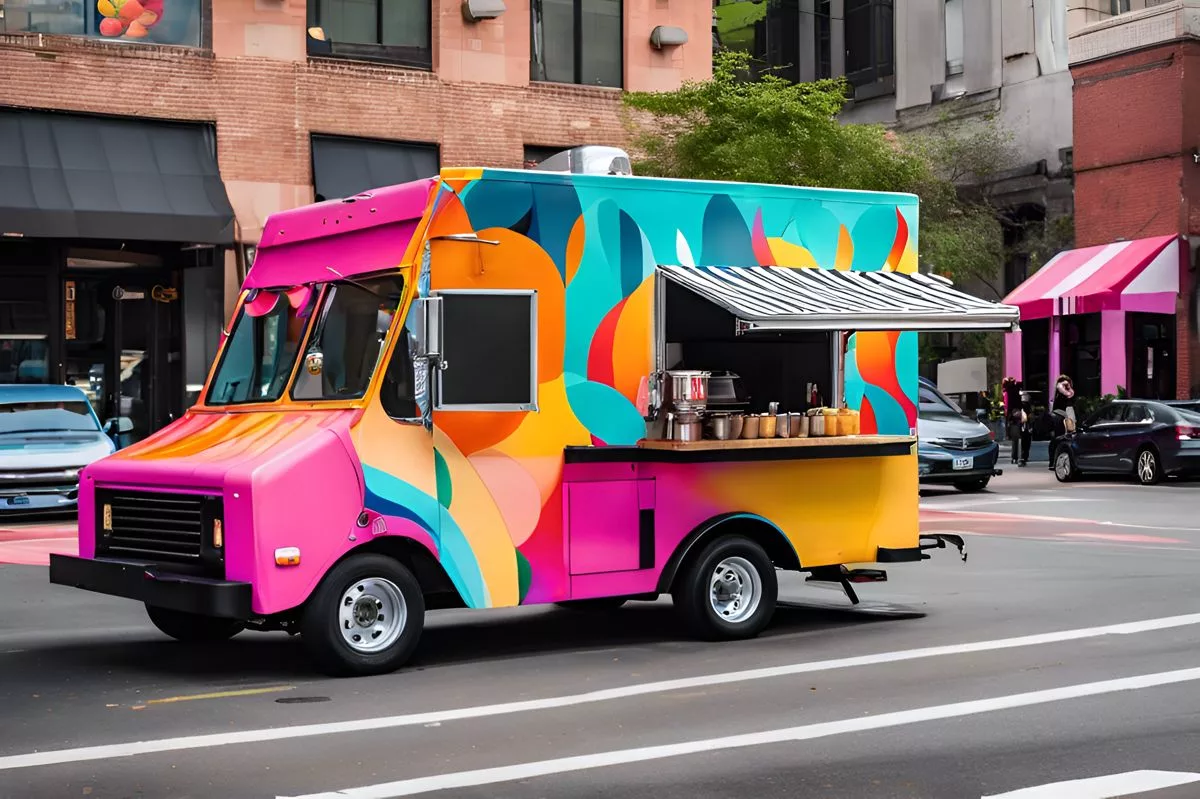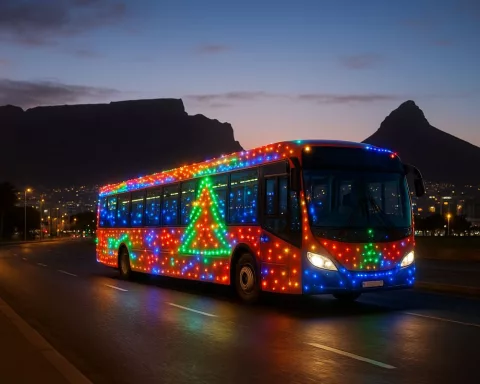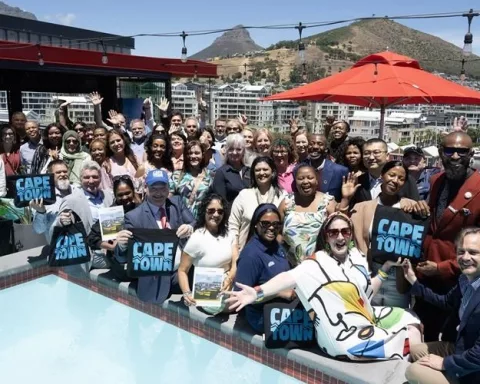Cape Town is taking exciting steps to boost its economy by creating 142 special areas for mobile businesses, like food trucks and barber shops. This plan, guided by a new Mobile Business Policy, aims to help these businesses grow and connect with the community. The city welcomes public feedback, encouraging residents to share their thoughts and ideas until October 2024. By blending old traditions of mobile trade with modern needs, Cape Town is shaping a vibrant commercial landscape that benefits everyone and celebrates creativity and connection.
What is Cape Town’s approach to mobile commerce?
Cape Town is establishing 142 designated mobile business trading areas to foster economic growth and entrepreneurship. This initiative, guided by a Mobile Business Policy, aims to create supportive environments for various mobile enterprises, enhancing local economies and community engagement.
Cape Town is making significant strides in the dynamic world of mobile commerce with a groundbreaking proposal. The city’s plan to establish 142 designated mobile business trading areas underscores a commitment to driving economic growth while fostering entrepreneurial innovation. This initiative, guided by a robust Mobile Business Policy, aims to create a structured yet adaptable environment for a wide range of mobile enterprises, from food trucks to service trailers.
A Progressive Step Towards Economic Sustainability
Cape Town’s dedication to sustainable economic development shines through in its ongoing efforts to cultivate supportive business environments. The draft Mobile Business Policy and proposed amendments to the Informal Trading By-law epitomize this commitment. The policy meticulously outlines specific trading areas where mobile enterprises can thrive, ensuring a harmonious blend with the city’s economic landscape.
The city’s public participation phase offers stakeholders a chance to review the 142 proposed sites on the ‘Have Your Say’ webpage. This interactive platform provides detailed information about the availability of bays per site, locations, and operational terms and conditions. Alderman James Vos, the Mayoral Committee Member for Economic Growth, highlighted the policy’s goal to simplify mobile business operations. He remarked, “Mobile businesses like food trucks, barber shops, and clothing shops have become increasingly popular. As such, the City wants to make it easier for businesses to operate in this sector.”
Engaging the Public in Shaping the City’s Commercial Landscape
Cape Town places public involvement at the heart of its policy-making process. The city encourages residents to submit their feedback on the proposed trading areas until 16 October 2024, ensuring the policy reflects the community’s needs and aspirations. To facilitate this, the City will hold a series of public meetings from 1 to 7 October 2024, offering a platform for residents to engage directly with policymakers and express their views.
Residents can provide their feedback through multiple channels:
– Online via the ‘Have Your Say’ page on the city’s website.
– Email submissions to Mobile.BusinessPolicy@capetown.gov.za.
– Hand-delivering comments to local subcouncil offices.
This multi-faceted approach ensures that every voice can be heard, fostering a collaborative environment where the community actively participates in shaping the commercial future of Cape Town.
A Historical Perspective on Mobile Commerce
Mobile commerce, while enjoying a modern resurgence, is deeply rooted in history. Ancient markets and bazaars were early examples of mobile trade, where merchants and traders roamed from place to place, offering their wares. This long-standing tradition of transient commerce finds a modern counterpart in today’s food trucks and mobile shops, which bring unique flavors and products to different urban areas.
Cape Town’s initiative aligns with these historical practices while addressing contemporary needs. By formalizing mobile business trading areas, the city acknowledges the sector’s potential to invigorate local economies and enrich the urban experience. This approach mirrors trends in global cities where mobile commerce has become an integral part of urban life, blending tradition with modernity.
The Artistic Flourish of Mobile Businesses
Mobile businesses often add a unique artistic and cultural vibrancy to urban landscapes. Food trucks, for instance, are not just about serving meals; they are canvases of creativity, often adorned with colorful and eye-catching designs. The sounds and aromas emanating from these trucks weave a sensory tapestry that enhances the urban experience.
Mobile barbershops and clothing shops also contribute to this cultural richness. These enterprises offer more than just services; they facilitate unique social interactions and cultural exchanges. A mobile barbershop can transform a routine haircut into a community event, fostering connections among residents. Similarly, mobile clothing shops introduce diverse fashion styles, showcasing trends that might otherwise remain inaccessible.
A Visionary Approach to Urban Development
Cape Town’s strategy for integrating mobile businesses reflects a forward-thinking approach to urban development. By designating specific areas for these enterprises, the city aims to balance regulation with entrepreneurial freedom. This strategy not only supports business growth but also enhances public spaces, making them more dynamic and engaging.
The proposed trading areas include diverse locations, from bustling city centers to quieter suburban spots. This variety ensures that mobile businesses can cater to a broad customer base, promoting inclusivity and accessibility. The policy’s terms and conditions provide a framework for fair competition and operational harmony, ensuring that mobile businesses coexist seamlessly with permanent establishments.
The Road Ahead: A Collaborative Journey
As the public participation process continues, the City of Cape Town remains dedicated to collaboration. The feedback collected will play a crucial role in finalizing the Mobile Business Policy and the related Informal Trading By-law amendments. Once this phase concludes, the proposals will move through various committees for review and approval.
Cape Town’s initiative serves as an example for other cities navigating the complexities of modern commerce. By embracing mobile businesses and thoughtfully integrating them into the urban landscape, the city demonstrates a visionary approach that values innovation, community engagement, and economic vitality. This forward-looking strategy highlights Cape Town’s commitment to building a sustainable and prosperous future for all its residents.
What is Cape Town’s approach to mobile commerce?
Cape Town is embarking on an initiative to create 142 designated trading areas for mobile businesses, guided by a new Mobile Business Policy. This initiative aims to foster economic growth, enhance local entrepreneurship, and create supportive environments for mobile enterprises such as food trucks, barber shops, and clothing shops.
How can residents participate in the feedback process?
Residents can engage in the public feedback process until October 16, 2024. They can submit their thoughts through multiple channels, including the ‘Have Your Say’ webpage on the city’s website, by emailing Mobile.BusinessPolicy@capetown.gov.za, or hand-delivering comments to local subcouncil offices. Additionally, public meetings will be held from October 1 to 7, 2024, for direct engagement with policymakers.
What are the benefits of the Mobile Business Policy for Cape Town’s economy?
The Mobile Business Policy is designed to create a structured yet adaptable environment for mobile enterprises, promoting economic sustainability and enhancing community engagement. By formalizing mobile business trading areas, the policy aims to invigorate local economies, support entrepreneurship, and celebrate creativity within the city.
How does Cape Town’s initiative reflect historical practices of mobile trade?
Cape Town’s approach to mobile commerce draws on historical practices of transient trade, such as ancient markets and bazaars. By establishing designated trading areas for modern mobile businesses, the city acknowledges the long-standing tradition of mobile commerce while addressing contemporary needs, fostering a vibrant urban experience.
What types of mobile businesses will benefit from this initiative?
The initiative will benefit a variety of mobile businesses, including food trucks, mobile barbershops, and clothing shops. These enterprises not only provide goods and services but also contribute to the cultural vibrancy of urban spaces, facilitating unique social interactions and enriching the community.
What is the vision for urban development through this initiative?
Cape Town’s strategy aims to integrate mobile businesses into the urban landscape while balancing regulation with entrepreneurial freedom. By designating diverse trading areas, the city seeks to enhance public spaces, promote inclusivity, and create dynamic environments for residents and visitors alike. This visionary approach reflects the city’s commitment to building a sustainable and prosperous future for all its residents.











